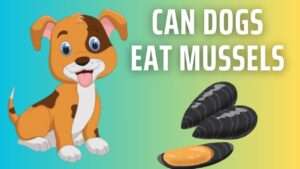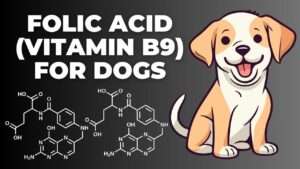When it comes to our furry companions, ensuring their diet is wholesome and balanced is crucial for their well-being. Just like humans, dogs have a sweet tooth, but not all sugars are created equal for our four-legged friends. While natural sugars can be a healthier option, it’s essential to understand which ones are safe and beneficial for your canine companion.
Contents Overview
Understanding Natural Sugars
Natural sugars, found in fruits, vegetables, and other sources, offer a healthier alternative to refined sugars. These sugars come packaged with essential nutrients, fiber, and antioxidants, providing a range of health benefits for both humans and dogs alike.
Sources of Natural Sugars for Dogs
Dogs, like humans, can benefit from the natural sugars found in certain foods. These sugars provide energy and essential nutrients that support overall health. Understanding the various sources of natural sugars for dogs can help you make informed decisions about what to include in their diet.
- Fruits:
- Fruits are a common source of natural sugars for dogs and offer a variety of flavors and nutrients. Some safe options include:
- Apples: Rich in vitamins A and C, as well as fiber, apples can be a crunchy and refreshing treat for dogs. However, be sure to remove seeds and cores, as they contain cyanide, which can be harmful.
- Bananas: High in potassium, fiber, and vitamins B6 and C, bananas are a popular choice for dogs. They’re easy to digest and can be mashed or sliced for easy consumption.
- Berries: Blueberries, strawberries, and raspberries are packed with antioxidants, vitamins, and fiber. They make excellent low-calorie treats that dogs love.
- Watermelon: This hydrating fruit is a great source of vitamins A and C, as well as hydration due to its high water content. Remove the seeds and rind before offering it to your dog.
- Vegetables:
- Certain vegetables also contain natural sugars that dogs can enjoy. These include:
- Carrots: Crunchy and low in calories, carrots are a good source of beta-carotene, fiber, and vitamin K1. They can be served raw or cooked and make great dental chews.
- Sweet Potatoes: Rich in fiber, vitamins A and C, and antioxidants, sweet potatoes are a nutritious addition to your dog’s diet. They can be baked, boiled, or dehydrated for a tasty snack.
- Peas: Whether fresh, frozen, or cooked, peas provide protein, fiber, and various vitamins and minerals. They’re a good source of energy and can be added to meals or given as treats.
- Honey:
- Honey is a natural sweetener that contains vitamins, minerals, and antioxidants. It has antimicrobial properties and can soothe sore throats and coughs. When giving honey to dogs, it’s essential to choose raw, unpasteurized honey and limit the amount due to its high sugar content. Avoid giving honey to puppies under one-year-old to reduce the risk of botulism.
- Coconut:
- Coconut products, such as coconut oil or coconut flakes, contain natural sugars and offer potential health benefits for dogs. Coconut oil is rich in medium-chain triglycerides (MCTs), which can support skin and coat health, improve digestion, and boost energy levels. Coconut flakes can be sprinkled over food or used as a tasty topping for treats.
By incorporating these natural sources of sugars into your dog’s diet in moderation, you can provide them with a variety of flavors, nutrients, and health benefits. Always introduce new foods gradually and monitor for any signs of allergic reactions or digestive upset. Additionally, consult with your veterinarian if you have any concerns about your dog’s diet or health.
Benefits of Natural Sugars for Dogs
Natural sugars found in certain foods can offer several benefits for dogs when incorporated into their diet in moderation. From providing energy to supporting overall health, these sugars play a vital role in maintaining your furry friend’s well-being. Let’s delve into the various benefits in detail:
- Provide Energy:
- Natural sugars serve as a quick source of energy for dogs, particularly important for active breeds or those engaging in physical activities like agility training or long walks.
- Dogs metabolize sugars efficiently, converting them into readily available fuel for muscles and organs, helping them maintain optimal energy levels throughout the day.
- Supply Essential Nutrients:
- Fruits and vegetables containing natural sugars are rich in essential vitamins, minerals, and antioxidants crucial for supporting various bodily functions.
- These nutrients contribute to overall health, immune system function, and disease prevention, helping dogs thrive both internally and externally.
- Promote Hydration:
- Many fruits and vegetables with natural sugars have high water content, aiding in hydration and supporting proper kidney function.
- Hydration is essential for maintaining healthy skin and coat, regulating body temperature, and ensuring overall well-being, particularly during warmer weather or after physical exertion.
- Support Digestive Health:
- Natural sugars often come packaged with dietary fiber, which plays a crucial role in digestive health and regular bowel movements.
- Fiber helps promote gastrointestinal motility, prevent constipation, and support the growth of beneficial gut bacteria, contributing to a healthy digestive system.
- Contribute to Dental Health:
- Some natural sugars, such as those found in crunchy fruits and vegetables like apples and carrots, can help clean teeth and gums by mechanically removing plaque and tartar.
- Chewing on fibrous fruits and vegetables stimulates saliva production, which can help wash away food particles and bacteria, reducing the risk of dental issues like plaque buildup and gum disease.
- Serve as Low-Calorie Treats:
- Natural sugar-containing foods like fruits and vegetables are often low in calories compared to traditional treats or processed snacks.
- Offering these healthier alternatives as treats allows dogs to indulge without the risk of excessive weight gain or overconsumption of empty calories, promoting weight management and overall fitness.
- Boost Mental Stimulation:
- Introducing a variety of natural sugar-containing foods into your dog’s diet provides mental stimulation through different textures, flavors, and enrichment opportunities.
- Engaging their senses during mealtime or treat time can help prevent boredom, reduce stress, and enhance their overall quality of life.
By incorporating natural sugars from fruits, vegetables, and other wholesome sources into your dog’s diet in appropriate amounts, you can provide them with a range of health benefits that contribute to their overall happiness and well-being. However, it’s essential to offer these foods in moderation and consult with your veterinarian if you have any concerns about your dog’s dietary needs or health status.
Safe & Unsafe Natural Sugars for Dogs
Let’s explore a comprehensive list of safe and unsafe natural sugars for dogs to help you make informed choices for your canine companion’s diet.
Safe Natural Sugars for Dogs
- Apples: Rich in vitamins A and C, as well as fiber, apples make a crunchy and nutritious treat for dogs.
- Bananas: Packed with potassium and vitamins, bananas are gentle on a dog’s stomach and make for a tasty snack.
- Blueberries: Loaded with antioxidants, blueberries can boost your dog’s immune system and promote overall health.
- Carrots: Crunchy and low in calories, carrots are excellent for promoting dental health in dogs.
- Sweet Potatoes: High in fiber and beta-carotene, sweet potatoes are easy to digest and provide a nutrient-rich snack.
- Pumpkin: Aids in digestion and regulates bowel movements, pumpkin is also a great source of vitamins and minerals.
- Watermelon: Hydrating and refreshing, watermelon is safe for dogs in moderation, but be sure to remove the seeds.
Unsafe Natural Sugars for Dogs
- Grapes and Raisins: These fruits can cause kidney failure in dogs, even in small amounts.
- Cherries: Cherry pits contain cyanide, which is toxic to dogs. Additionally, the fruit itself can cause gastrointestinal upset.
- Avocado: While the fruit itself isn’t toxic, the pit and skin contain persin, which can be harmful to dogs.
- Citrus Fruits: The oils and psoralens found in citrus fruits like oranges, lemons, and limes can cause irritation and digestive issues in dogs.
- Xylitol: A sugar alcohol used as a sweetener in many products, xylitol is highly toxic to dogs and can cause hypoglycemia and liver failure.
- Onions and Garlic: These members of the allium family can cause damage to a dog’s red blood cells, leading to anemia.
- Fruit Seeds and Pits: Seeds and pits from fruits like apples, peaches, and plums contain cyanide and can be choking hazards.
Considerations When Feeding Natural Sugars to Dogs
While natural sugars from fruits, vegetables, and other sources can offer numerous health benefits to dogs, it’s essential to approach their inclusion in the diet with careful consideration. Several factors should be taken into account to ensure the safety and well-being of your furry companion. Let’s explore these considerations in detail:
- Moderation is Key:
- While natural sugars can be beneficial, they should be provided in moderation as part of a balanced diet. Excessive consumption of sugary foods can lead to weight gain, and dental issues, and potentially contribute to the development of conditions like diabetes in susceptible individuals.
- Monitor the portion sizes of sugary treats and incorporate them into your dog’s overall calorie intake to prevent overindulgence.
- Avoid Toxic Foods:
- Not all fruits and vegetables are safe for dogs to consume. Some foods, such as grapes, raisins, avocados, onions, and garlic, can be toxic and pose serious health risks, including kidney failure, gastrointestinal upset, and even death.
- Familiarize yourself with a list of foods that are harmful to dogs and ensure that any natural sugars you offer are from safe sources.
- Watch for Allergies:
- Dogs, like humans, can have food allergies or sensitivities to certain ingredients, including fruits and vegetables. Monitor your dog for any signs of allergic reactions, such as itching, redness, swelling, vomiting, or diarrhea, after introducing new foods into their diet.
- If your dog exhibits any adverse reactions, discontinue feeding the suspected food item and consult with your veterinarian for further guidance.
- Consider Individual Health Needs:
- Take into account your dog’s age, breed, size, activity level, and any underlying health conditions when selecting natural sugars for their diet.
- Dogs with medical conditions such as diabetes may require special dietary considerations and the intake of sugary foods should be closely monitored or limited under veterinary supervision.
- Puppies, seniors, and dogs with compromised immune systems may have different nutritional requirements, so tailor their diet accordingly.
- Monitor Dental Health:
- While some natural sugars, like those found in crunchy fruits and vegetables, can help clean teeth and gums, others may contribute to dental issues if not consumed in moderation.
- Regular dental care, including brushing your dog’s teeth, providing dental chews or toys, and scheduling professional cleanings as needed, is essential for maintaining oral health.
- Introduce New Foods Gradually:
- When introducing new fruits, vegetables, or other natural sugar-containing foods into your dog’s diet, do so gradually to allow their digestive system to adjust.
- Start with small amounts and observe how your dog responds. If there are no adverse reactions, you can gradually increase the portion size over time.
- Consult with Your Veterinarian:
- Before making significant changes to your dog’s diet or introducing new foods, it’s advisable to consult with your veterinarian.
- Your vet can provide personalized recommendations based on your dog’s individual needs, health status, and dietary requirements, ensuring that any dietary changes are safe and appropriate.
Bottom Line
In conclusion, natural sugars can be a nutritious and tasty addition to your dog’s diet when given in moderation and with careful consideration. By incorporating fruits, vegetables, and other natural sources of sugar into their meals, you can provide your furry friend with essential nutrients and health benefits. However, always remember to monitor portion sizes, avoid toxic foods, and consult with your veterinarian if you have any concerns about your dog’s diet. With the right approach, you can help keep your canine companion happy, healthy, and thriving.

































+ There are no comments
Add yours